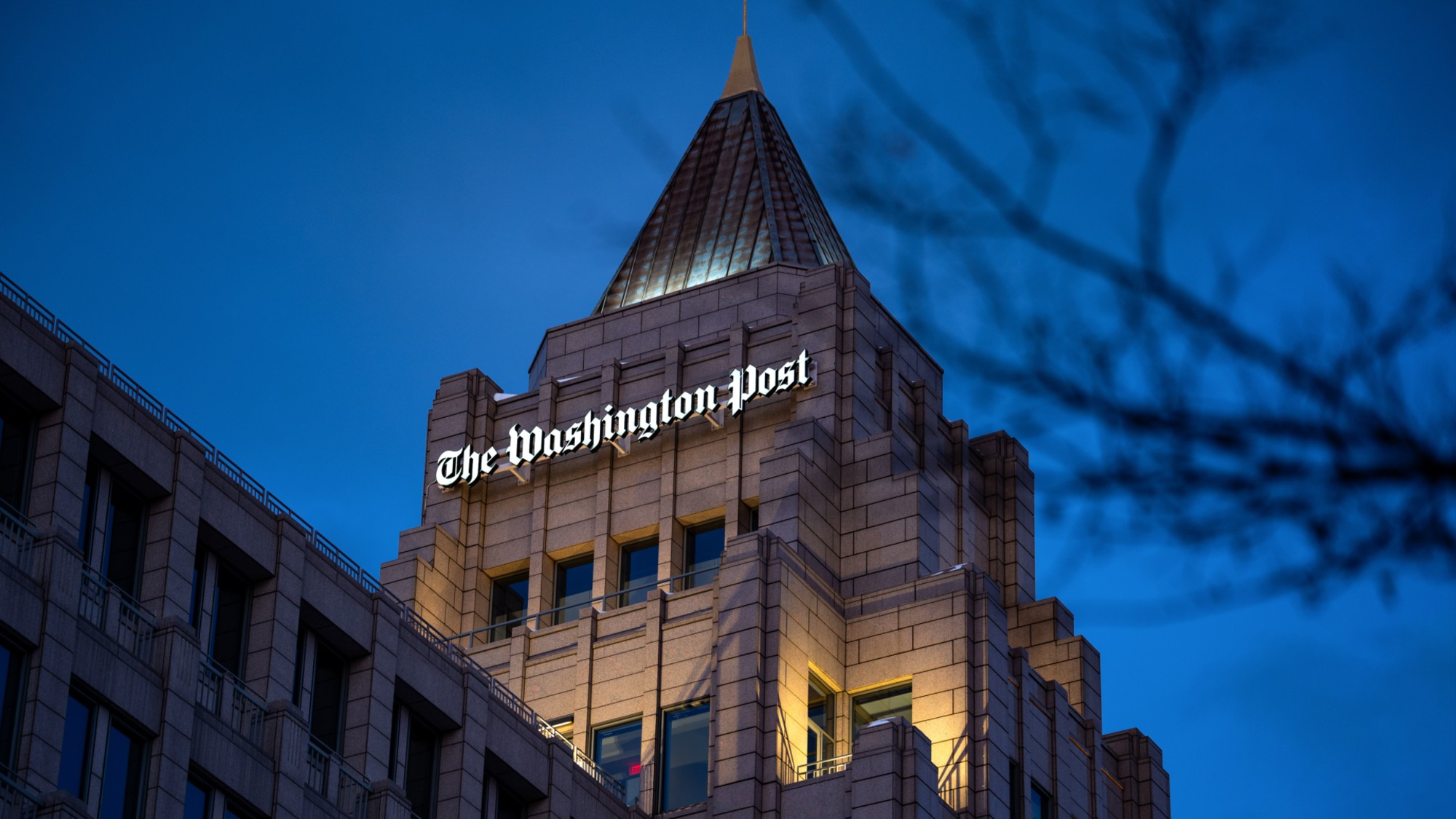Scots referendum: a final battle between hope and fear
Politics professor John Curtice charts the changes in public opinion over the campaign’s final weeks

A free daily email with the biggest news stories of the day – and the best features from TheWeek.com
You are now subscribed
Your newsletter sign-up was successful
Just a few short weeks ago, it looked as though it was clear who was going to win the Scottish independence referendum. Although the polls persistently disagreed with each other as to how far it was behind, not a single independently commissioned poll had actually put the Yes side ahead. Some indeed put the pro-independence camp as much as 11 points short of the 51 per cent winning post it needed to reach.
It also looked as though shifting the balance of public opinion was difficult. Although the Yes side certainly managed to close the gap during the winter, its progress – from an average poll rating of 39 per cent (after Don’t Knows were removed) to one of 43 per cent – was stately rather than meteoric.
And since April there had been no consistent evidence at all of one side or the other beginning to make ground. This was a debate that had been going on for 40 years and touched many people’s profound sense of national identity, so there seemed every good reason to believe that the polls would not move.
The Week
Escape your echo chamber. Get the facts behind the news, plus analysis from multiple perspectives.

Sign up for The Week's Free Newsletters
From our morning news briefing to a weekly Good News Newsletter, get the best of The Week delivered directly to your inbox.
From our morning news briefing to a weekly Good News Newsletter, get the best of The Week delivered directly to your inbox.
The turnaround
But in the second half of August there were the first signs that perhaps the Yes side was making progress. It was nothing dramatic, but more than one poll suggested that support might have edged up a point or two, even though Alex Salmond was widely thought to have lost the first of the two televised leaders’ debates at the beginning of the month.
Then came the news from YouGov on September 2 (in a poll conducted after the second leaders’ debate that Salmond clearly won) that Yes was now on 47 per cent. Not that this was the first time a poll had put the pro-independence vote that high. Three other companies – ICM, Panelbase, and Survation - had all previously done so, in some cases repeatedly. But not YouGov. Only as recently as August 11 it had the Yes vote on 39 per cent, and had never given the Yes side more than a 42 per cent rating. Many concluded that if YouGov thought it was close then it really must be.
It did not end there. On September 6 YouGov announced that it had detected a further advance by Yes and that it was now ahead on 51 per cent – the first poll to do so. Then three days later another company that also had hitherto been painting a relatively pessimistic picture for the Yes side weighed in with the finding that Yes and No were now tied on 50 per cent each. Curiously neither Panelbase nor Survation detected any swing at all, still reckoning Yes to be on 47 to 48 per cent. But it certainly appeared that, whatever disagreements they had had up to that point, all the pollsters now agreed that the referendum race was remarkably close.
A free daily email with the biggest news stories of the day – and the best features from TheWeek.com
The plateau
But that left a key question. Was the swing to Yes a bandwagon onto which more and more voters would now want to jump given that the prospect of independence finally looked like more than an impossible dream? After all, the apparent negativity of the No campaign did not seem be generating much enthusiasm in the minds of voters.
However, the narrowing of the polls also gave the No side a new weapon. As a result of the polls, the financial markets got a little jittery, the Scottish registered banks announced that in the event of independence they would move their registered head office to London, while many a business leader was stimulated to put their head above the parapet and warn of the deleterious consequences that independence would bring.
Maybe this reaction – and a much trumpeted visit north by all three Westminster party leaders – would cause some voters to draw back as they peered over the edge of the independence precipice and become more aware of the size of the (alleged) drop.
In truth neither development seems to have happened. True, at the end of the week YouGov announced that Yes support had eased back to 48 per cent. But both Survation and Panelbase suggested Yes support remained more or less steady, while ICM put it as high as 49 per cent in one poll and as much as 54 per cent in another (albeit one with rather a small sample size). At 49 per cent the average Yes vote in six polls published between Friday and Sunday was exactly the same as it had been in four polls released in the first half of the week.
Arguably that still meant that last week was a better one for No than for Yes. Stopping the Yes bandwagon while it still appeared to fall short of the 50 per cent mark could be regarded as a damage limitation exercise well done. On the other hand, the apparent failure of the independence warnings from banks and business (not after all the most popular of institutions) to make any significant dent in Yes support means the No side can still hardly afford to rest on its laurels.
The final few days
In the final few days we can anticipate yet more from the No side on the alleged risks of independence and above all how it thinks leaving the UK would hit people in their pockets, laced with reminders that if Scotland does vote Yes there will be no turning back, not least from David Cameron. The No side will hope that will generate a late swing that sees it securely home, and this would not the first referendum in which that has appeared to happen.
The Yes side has a counter to that argument. Thursday’s vote, its leaders argue, represents a once-in-a-lifetime opportunity to seize the chance of a brighter and better future. If Scotland votes No, they suggest, it will not get a second chance. It is on this psychological battle between hope and fear that the outcome of Thursday’s historic vote would now appear to rest.
John Curtice is Professor of Politics at Strathclyde University. This article is reproduced with the permission of The Conversation.
-
 Nepal’s fake mountain rescue fraud
Nepal’s fake mountain rescue fraudUnder The Radar Arrests made in alleged $20 million insurance racket
-
 History-making moments of Super Bowl halftime shows past
History-making moments of Super Bowl halftime shows pastin depth From Prince to Gloria Estefan, the shows have been filled with memorable events
-
 The Washington Post is reshaping its newsroom by laying off hundreds
The Washington Post is reshaping its newsroom by laying off hundredsIn the Spotlight More than 300 journalists were reportedly let go
-
 The high street: Britain’s next political battleground?
The high street: Britain’s next political battleground?In the Spotlight Mass closure of shops and influx of organised crime are fuelling voter anger, and offer an opening for Reform UK
-
 Is a Reform-Tory pact becoming more likely?
Is a Reform-Tory pact becoming more likely?Today’s Big Question Nigel Farage’s party is ahead in the polls but still falls well short of a Commons majority, while Conservatives are still losing MPs to Reform
-
 Taking the low road: why the SNP is still standing strong
Taking the low road: why the SNP is still standing strongTalking Point Party is on track for a fifth consecutive victory in May’s Holyrood election, despite controversies and plummeting support
-
 What difference will the 'historic' UK-Germany treaty make?
What difference will the 'historic' UK-Germany treaty make?Today's Big Question Europe's two biggest economies sign first treaty since WWII, underscoring 'triangle alliance' with France amid growing Russian threat and US distance
-
 Is the G7 still relevant?
Is the G7 still relevant?Talking Point Donald Trump's early departure cast a shadow over this week's meeting of the world's major democracies
-
 Angela Rayner: Labour's next leader?
Angela Rayner: Labour's next leader?Today's Big Question A leaked memo has sparked speculation that the deputy PM is positioning herself as the left-of-centre alternative to Keir Starmer
-
 Is Starmer's plan to send migrants overseas Rwanda 2.0?
Is Starmer's plan to send migrants overseas Rwanda 2.0?Today's Big Question Failed asylum seekers could be removed to Balkan nations under new government plans
-
 Has Starmer put Britain back on the world stage?
Has Starmer put Britain back on the world stage?Talking Point UK takes leading role in Europe on Ukraine and Starmer praised as credible 'bridge' with the US under Trump